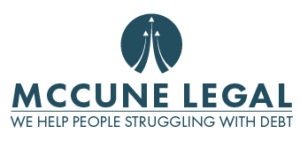Bankruptcy Litigation Options
Bankruptcy litigation, within the court of law, can be broken down into four broad categories. They are distinguished based upon their relationship to the bankruptcy itself. This is important to note because it directly impacts the decision-making authority and the jurisdiction.
Bankruptcy Litigation Core Matters
By definition, these are matters arising under the Bankruptcy Code that relate directly to the bankruptcy. Issues having to deal with things like the sale of a debtor’s assets or the relationship between a debtor and creditor. In these circumstances, the bankruptcy judge has the final say, although subject to appeals.
Non-Core Matters
These are matters that could have occurred between the involved parties even if a bankruptcy case had not been filed i.e. contract disputes and tax litigation. A bankruptcy judge’s authority in a non-core matter is limited to making a recommendation to the federal district court. However, all parties may agree to grant the bankruptcy judge the final say.
Adversaries
An adversary proceeding is a litigation that is connected to the main bankruptcy case, but is assigned its own case number and handled according to its own unique set of litigation rules. It typically involves a plaintiff versus defendant and proceeds like the majority of other trials.
Contested matters
Although it is possible, contested matters usually don’t become an all-out litigation scenario. They typically deal with a smaller issue within the larger bankruptcy case. An object to proof of claims or a motion to lift the automatic stay are just a couple of examples. Objections to Chapter 11 or Chapter 13 plans would also be considered contested matters.
Bankruptcy Litigation Exceptions
It is very rare for a bankruptcy judge to avoid handling litigations that arise during a case. However, there are always exceptions to the rule. Here are a few scenarios that aren’t dealt with in bankruptcy courts:
- Divorce or child custody cases
- Probate matters
- Personal injury matters
Once an individual decides to file for bankruptcy, they should understand that not all litigations will come directly from the bankruptcy case itself. Any litigation a debtor has the potential to be involved with (especially those concerning the debtor’s money or property) can be brought into the bankruptcy court.
Speaking of litigation, we aren’t here to argue with you about why bankruptcy is your only option. McCune Legal is here to work with you, giving you all the information you need to make the decision that is best for you.
Take the first step toward a fresh start. Give us a call so we can get the conversation started on how to get you out of debt.

